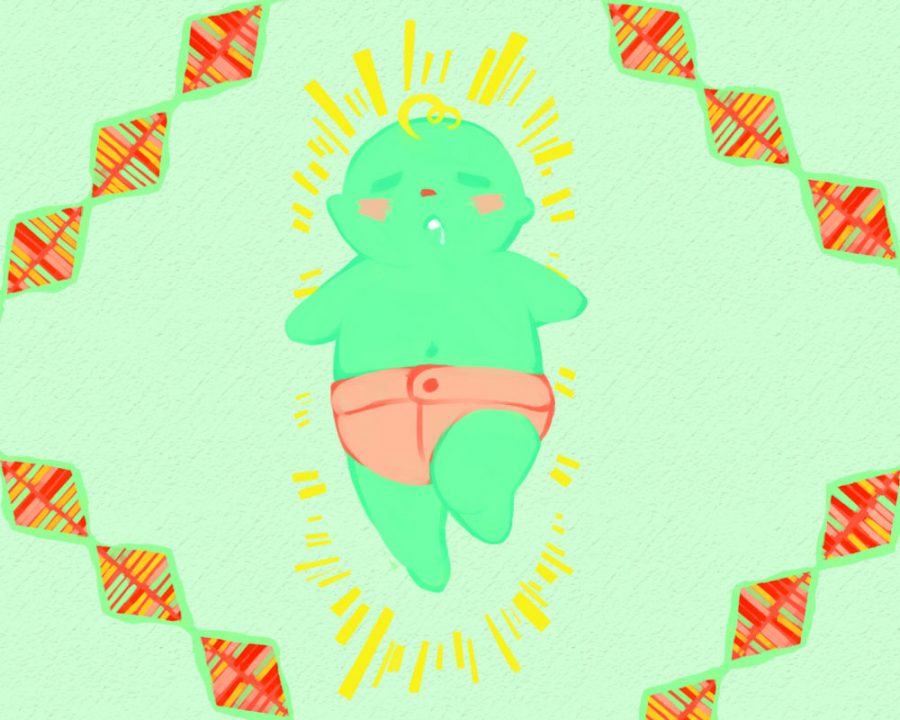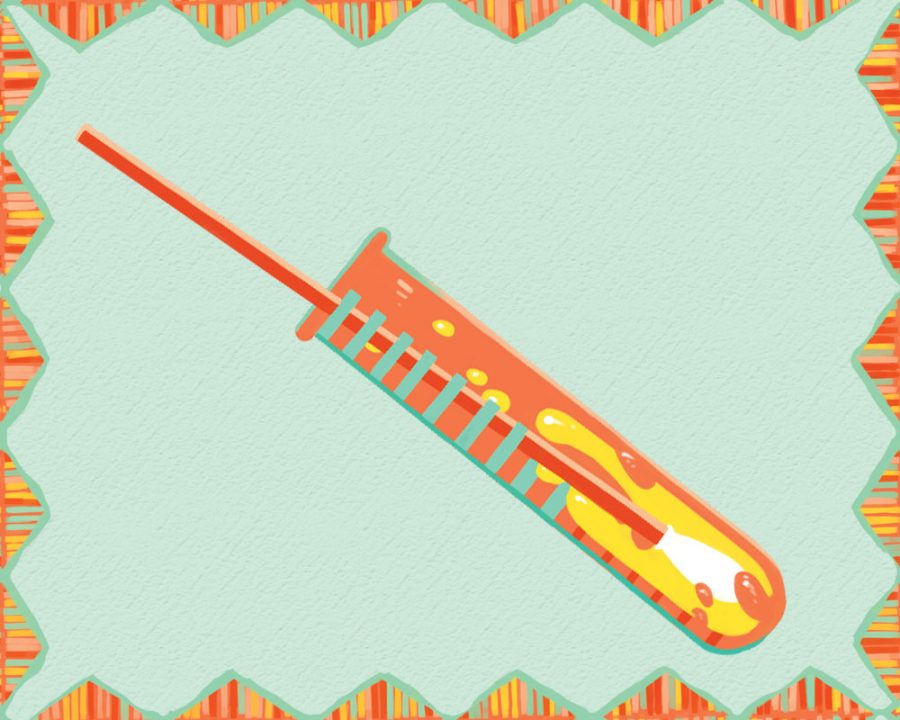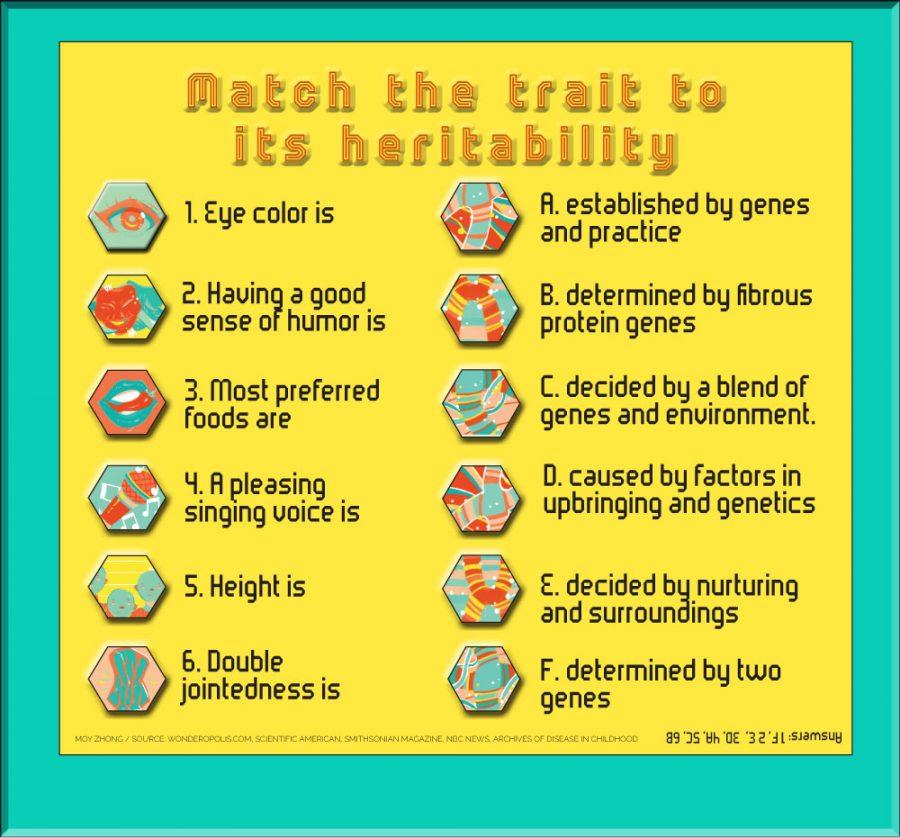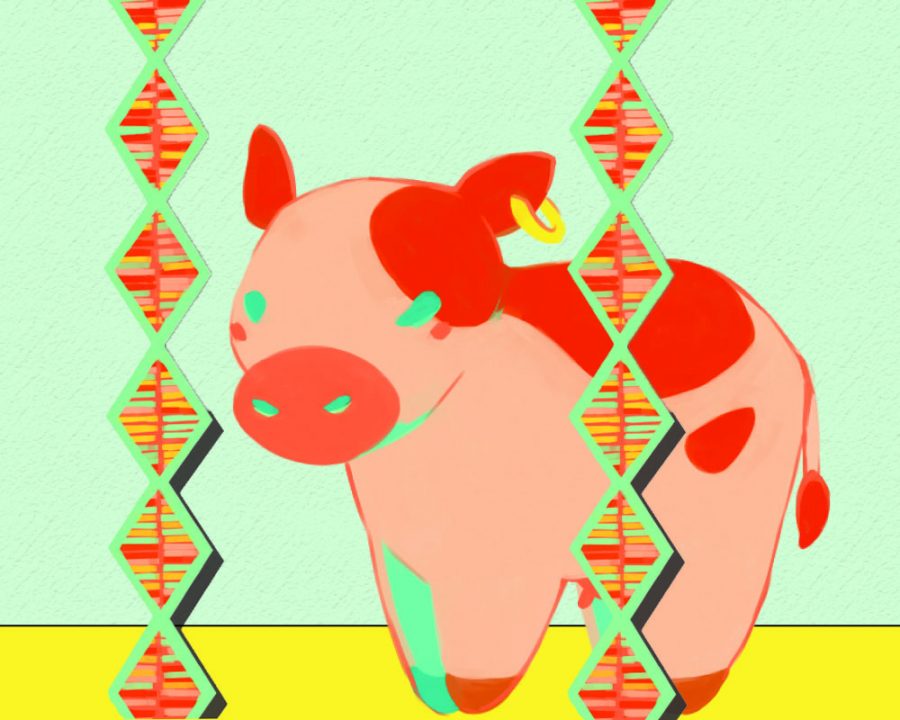Art by Moy Zhong
One year ago, sophomore Malik Ibdah would have never guessed that a video explaining the transcription process of deoxyribonucleic acid (DNA) to messenger RNA (mRNA) would spark his interest in molecular biology. Spending hours pouring over research and peering through a microscope wasn’t exactly appealing to him — he would rather be indulging in some of his favorite activities like working with ceramics or playing music.
In fact, since the 4th grade, he was adamantly committed to becoming a chemist — until October of 2016 in his Biology class, that is.
“I was sick the day my class learned about [making mRNA], so I went on Schoology and studied the notes my teacher uploaded to understand it, and that’s where it started,” Ibdah said. “Once I got interested, my dad, who is a biochemist, started really getting me engaged [in] it and taught me some really cool things. I’m thinking about studying molecular biology because it’s so interesting how complicated things work at such as small level.”
One of the topics within biology that particularly interested him was the ethical side of science. For his final essay in Biology, he wrote about G1528c, a genetic mutation his father, Dr. Jamal Ibdah, discovered, that causes complications for the mother. Throughout the essay, he analyzed the different hypothetical options a mother with a baby with the mutation could undergo, such as an abortion or genetic therapy.
While situations like the one posed in Ibdah’s research paper are hypothetical, there are thousands of real cases of mothers weighing the same questions. They may be contemplating genetic testing for their baby, creating a baby through in vitro fertilization or even terminating their baby based off of a foreseen disease. Dr. Jamal Ibdah has dealt with similar situations with his patients that prioritize ethics.
As a physician and a scientist, Dr. Jamal Ibdah has conducted research to find the cause of acute fatty liver in pregnancy, which is life-threatening to the fetus and mother. This study later led to the discovery of a new genetic mutation.
“G1528C mutation causes also a disease in children that can be fatal,” Dr. Jamal Ibdah said. “Screening for this mutation in babies born to mothers who develop acute fatty liver of pregnancy is life-saving to the newborn since it allows early diagnosis and treatment. Discovery of this mutation also allows [for] prenatal diagnosis.”
For emerging professionals in the field of biology like Malik Ibdah, the ethical boundaries of science have become increasingly present. Technologies such as genetic testing, CRISPR-Cas9, a genome editing tool, and many others have enabled professionals to predict and alter genes in humans. This leaves the idea of “designer babies,” or genetically engineering an in vitro baby’s genes for selected traits, a reality.
While biology teacher Kerri Graham wasn’t worried about the genetic makeup of her children and chose not to get genetic testing done, she said that was a personal choice on her and her husband’s part.
“When we found out we were pregnant with twins, we had the option of extra testing. You always have the option of genetic testing with any pregnancy,” Graham said. “We talked a little bit about it — I had a background in all of that — and I didn’t want to have my kids genetically tested before they were born because I knew I was going to love them no matter what, however they came unto this Earth. I was just so thrilled to have children that that wasn’t an important thing to me. Now, that being said, I had a very high-risk pregnancy with them being twins, and we had a lot of other testing [such as] an ultrasound every single week.”
Graham was 24 weeks into her pregnancy when she went to the hospital. The doctors later put her on bedrest for the following three months after she went into preterm labor. Although it was a very high stress pregnancy, she still felt comfortable not getting tests done to see her children’s genes.
“All infants go through newborn screening, and there’s a set of about 30 diseases that if they’re born in a hospital are typical for them to be tested for,” Graham said. “My boys were tested for all of those normal things that are just easy to be tested for… Our boys went through [those screenings] and our doctor came in and said, ‘They all look good.’”
In Graham’s situation, she was thankful for her knowledge on child development through her job as a teacher, and said she felt “empowered with information” to make decisions she felt comfortable with.
Dr. Jamal Ibdah feels similarly with his line of work, saying his knowledge in both science and health has allowed him to make informed decisions in the differing circumstances his patients encounter. His said he used genetic screening in families who were suspected to have the disease throughout his research.
“Genetic testing can provide important medical information and can be life-saving. There are some ethical issues that can be associated with genetic testing. One aspect is prenatal testing for a genetic mutation and the decision regarding continuation of pregnancy taking in consideration the health of the mother,” Dr. Jamal Ibdah said. “Although I did not personally deal with situations that present ethical dilemma, professionals should adapt a teamwork approach to genetic testing. Scientists should work closely with physicians, genetic counselors, and ethicists in a collaborative approach to deal with the scientific, medical, and ethical aspects that may arise.”
Even though moral questions continue to arise in science, Malik Ibdah said answering them should be reflected on each family’s personal values and, as a future biologist, on a ethical and unbiased manner.
“I believe professionals [in biology] should be able to alter the natural birth process if the situation calls for it, such as life threatening complications,” Malik Ibdah said. “I also believe testing a baby for disorders and potentially terminating the fetus for a said disorder is ethical because it can cause life threatening situations for the mother or cause the baby to live an awful life with said disorder if it’s severe enough.”
While Graham teaches her classes about the morality of certain technological advances in science, she said her aim is to show the positive and negative effects of the topic so that her students can make informed decisions later in life.
“Science is about exploring and figuring out if we can do it, but then that social-ethical piece has to come into ‘Should we do it?’ and by what moral and ethical codes are we following in making that decision? Sometimes that is a social conversation, and sometimes that’s a personal conversation,” Graham said. “When it comes to some of these genetic technologies and humans, I think there could be some positive impacts for sure, like when you look at particularly certain genetic diseases. I think we need to be super mindful about how we proceed if we are going to alter our DNA, that we are not selecting purposefully against and further discriminating against with our selecting. I think that’s something that’s going to be a huge conversation in our society as times goes on.”
Do you think genetic testing should be restricted? Leave a comment below.
















































































